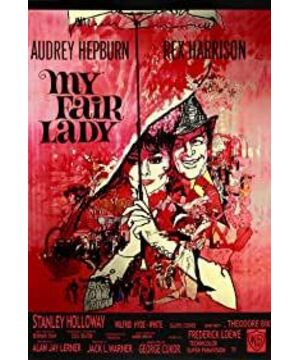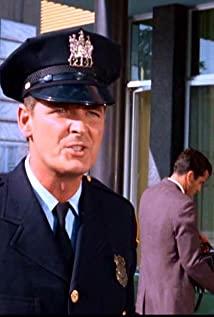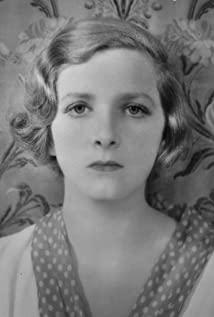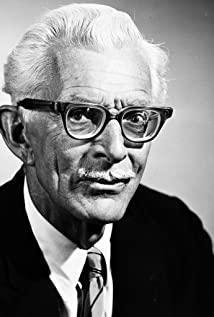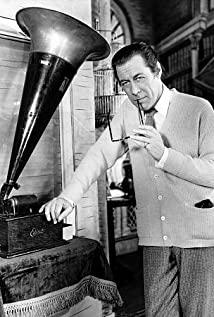In 1964, Warner Bros. made it into a movie and put it on the big screen, not only invited the superstar Audrey Hepburn and the legendary director George Cook to join, but the production cost of more than 10 million US dollars was extremely rare at the time. The film was a huge success and won the 37th Academy Awards for Best Picture, Best Director, Best Actor, Best Cinematography, Best Art Direction, Best Costume Design, Best Sound and Best Adapted Score 8 awards and 13 nominations.
Because the soundtrack was not sung by herself, Hepburn did not receive an Oscar nomination, but she contributed superb acting skills to the play, drawing a successful end to her acting career, and then announced her retirement.
Upbringing is a pair of skins, a green card leading to the upper class. Wearing it can make the fake look real, but it can also cover up the brilliance or ugliness of human nature, putting a thick armor between people, so that the real human nature does not appear easily spied on. The flower girl Eliza repeatedly reiterated "I'm a good girl." to her mentor Higgins. The quality of people is indeed good, but why is she always annoying and avoidable? Not because she came from a humble background and was a flower girl, but because she was undisciplined, indifferent, impolite, savage, arrogant, and in a word—she lacked education.
The reason for all this is that she was undisciplined since she was a child. Her father was an alcoholic and illiterate ruffian. She could only make a living by selling flowers on the streets of the market, and she was dealing with the poor in the slums on weekdays. However, with the same body replaced by a lady's outfit and a skin bag made of hard education, she can turn beautifully and transform into a "Hungarian princess who speaks authentic English", which is favored by the Queen of Hungary and a gentleman in the upper class. The son's pursuit.
The nobles carefully designed a set of civilized rituals and behavioral standards to distinguish them from the common people, thinking that they could better protect the "blood" of their royal relatives. Such a tall and closed social circle was successfully penetrated by a slum girl who pretended to be flawless. The success of Higgins' experiment was a heavy blow to the complicated and superficial etiquette system of the British upper class. .
Accent was an important indicator of the distinction between nobles and commoners in Britain at that time. As long as the country accent is erased, it can be used in the royal family. From one aspect, the work reflects the original author Bernard Shaw's contempt and disgust for the aristocratic style of the upper class, as well as his hope to break the strict hierarchy and promote sincere exchanges between people.
Another main line of the work is the love between Higgins' mentor and Eliza. Higgins is a pedantic, ignorant, impatient, but compassionate, benevolent semi-mature man who, encouraged by his friend Colonel Pickering, accepted the idea of turning the flower girl into an aristocratic lady. Mission challenge. Although Eliza was born in poverty, was blackmailed by her biological father, and was looked down upon by others, her life did not give her any warmth, but there was still a trace of yearning for a better life in her heart. She did not give up on herself, and held firm confidence and dignity. to survive. Driven by such motives, Eliza obtained the consent of Higgins, and during the long-term running-in, training and teaching, a feeling of mutual dependence quietly grew in their hearts.
How painful the process is, how sweet the fruit is. How impossible the task is, how precious is the joy brought by overcoming the difficulties. When the ideas Higgins instilled worked in her, the sense of accomplishment made the two experience indescribable joy. For Higgins, it represented the success of a laborious experiment that finally paid off; for Eliza, the joy came even more intensely. In the process of her growth, she lacked a spiritual mentor. What she did for the first time made her mentor proud of her instead of annoying her. She seemed to finally be useful to others and to the society, and she lost her way. The lamb found her shepherd.
When the two of them got along, even though Eliza tried her best to make noise, challenge and resist, her status with her mentor was always the relationship between servant and master. When the mission was successful, she found that she was not as important to the mentor as she thought, and everyone cheered to congratulate the mentor. No one cared that this was a successful cooperation that only works with each other, including the mentor who completely ignored her. At this time, Eliza, who thought she was valued, realized sadly that what she once thought was only her own self-love, in the heart of the teacher, she had no more weight than a humble servant.
So the two tore their faces again. Although men suffer from face and class superiority, women also have strong self-esteem, but the human heart is fleshy, and what the heart wants can not help but be divided into reason, logic and self-esteem. They all said that I don’t need you, you are not good, the earth will still turn without you, the sun will rise tomorrow, hurry up and love whoever, but the real OS in the hearts of the two is this:
Male: I created you, so you It's mine, I won't allow you to disappear out of thin air.
Woman: Since you invited me into your world, don't let me go back to my original world. Because I am no longer me.
So we got a happy ending - the woman returned to the man. Eliza did not choose the romantic boy brother, and did not go back to the slum where she raised her; Higgins tried to fill the lost soul with Eliza's recordings in the empty living room, and the habit has become a kind of dependence. After all, only in each other can the most exciting part of his/her life be inspired, and he/she can live the most desired self. They have unknowingly become the most important people in each other's lives.
If I lose you, how can I call you?
It is worth mentioning that the gorgeous words used in the old-fashioned English in the film are very different from the concise and straightforward modern American English. With the wonderful opera soundtrack, the movie-watching experience is full of romance and fantasy.
Who else
View more about My Fair Lady reviews


